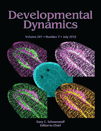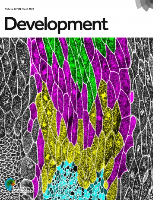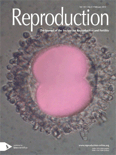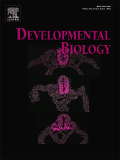
INTERNATIONAL JOURNAL OF DEVELOPMENTAL BIOLOGY
Scope & Guideline
Exploring the Depths of Embryological Research
Introduction
Aims and Scopes
- Developmental Mechanisms and Pathways:
The journal focuses on the molecular and cellular mechanisms that govern development, including key signaling pathways like Wnt, TGF-β, and BMP, which are crucial for pattern formation and differentiation. - Model Organisms in Development:
Research utilizing various model organisms such as zebrafish, Xenopus, and axolotls is prevalent, highlighting how findings in model systems can inform our understanding of developmental processes across species. - Stem Cell Biology and Regeneration:
There is a strong emphasis on stem cell research, including the mechanisms of pluripotency and differentiation, as well as studies on regeneration in both vertebrate and invertebrate model systems. - Evolutionary Developmental Biology (Evo-Devo):
The journal explores the evolutionary aspects of developmental processes, examining how developmental mechanisms have evolved and contributed to diversity among organisms. - Applications of Developmental Biology:
Research that translates developmental biology findings into practical applications, such as regenerative medicine, cancer biology, and agricultural improvements, is also a significant focus.
Trending and Emerging
- Neurodevelopment and Neural Crest Biology:
A noticeable increase in research related to neurodevelopment, particularly studies involving neural crest cells and their contributions to various structures in vertebrates, suggests a growing interest in understanding the complexities of nervous system development. - Regenerative Medicine and Stem Cell Applications:
Research focused on regenerative medicine, particularly involving stem cells and their differentiation pathways, is on the rise, reflecting broader trends in the field aimed at harnessing regenerative potential for therapeutic applications. - Mechanotransduction in Development:
Emerging studies highlight the role of mechanical forces in developmental processes, such as neural crest formation and tissue morphogenesis, indicating a trend towards integrating biophysical aspects into developmental biology. - Single-Cell and Transcriptomic Approaches:
The application of single-cell transcriptomics to study developmental processes is increasingly popular, allowing for more precise characterization of cell populations and their dynamics during development. - Environmental Influences on Development:
There is a growing focus on how environmental factors, such as exposure to chemicals (e.g., Bisphenol A) and mechanical forces, impact developmental processes, suggesting an increasing awareness of the interplay between biology and environmental science.
Declining or Waning
- Historical Perspectives in Developmental Biology:
Papers focusing on historical accounts or perspectives of developmental biology, while still relevant, have become less frequent, indicating a possible shift towards more contemporary and applied research topics. - Basic Descriptive Studies:
There seems to be a decline in purely descriptive studies of developmental processes without a strong mechanistic or applied focus, as the journal increasingly favors studies with clear implications for understanding or manipulating developmental outcomes. - Plant Developmental Biology:
Although plant developmental biology has been a part of the journal's scope, recent publications indicate a waning interest in this area, possibly due to the increasing focus on animal models and their translational relevance.
Similar Journals

CURRENT OPINION IN GENETICS & DEVELOPMENT
Advancing insights in genetics and development.CURRENT OPINION IN GENETICS & DEVELOPMENT is a prestigious journal published by CURRENT BIOLOGY LTD that offers an insightful platform for the latest developments and emerging trends in the fields of genetics and developmental biology. Established in 1991 and set to continue until at least 2024, this journal achieves notable recognition in the academic community with a Q1 classification in both its major categories as of 2023. With a Scopus rank placing it within the top quartile for both genetics and developmental biology, it serves as an essential resource for researchers, professionals, and students seeking to enhance their understanding of genetic mechanisms and developmental processes. While currently not an open-access journal, readers can explore the collection of high-quality articles that contribute to shaping contemporary scientific discourse and fostering innovation within these dynamic fields. For those dedicated to advancing their research and knowledge, CURRENT OPINION IN GENETICS & DEVELOPMENT stands as a vital and influential academic publication.

Cell Reports
Fostering Collaboration for a Healthier TomorrowCell Reports is a prestigious open-access journal published by CELL PRESS that has firmly established itself as a leading voice in the fields of Biochemistry, Genetics, and Molecular Biology. Since its inception in 2012, the journal has provided an innovative platform for rapid dissemination of cutting-edge research, ensuring that high-quality findings are accessible to a global audience. With an impressive impact factor and ranking within the top 10% in its category, as reflected by its Q1 ranking in Scopus, Cell Reports serves a vital role in advancing scientific knowledge and fostering collaboration among researchers. The journal's commitment to the open-access model not only enhances visibility but also encourages the sharing of critical advancements in molecular biology. Situated in the Netherlands, its contributions are recognized worldwide, making Cell Reports an indispensable resource for scientists aiming to stay at the forefront of their fields and facilitate breakthroughs that may shape the future of biomedicine.

DEVELOPMENTAL DYNAMICS
Exploring the Intricacies of Biological GrowthDEVELOPMENTAL DYNAMICS is a prominent journal in the field of Developmental Biology, published by WILEY. This esteemed journal, identifiable by its ISSN 1058-8388 and E-ISSN 1097-0177, provides a critical platform for the dissemination of innovative research covering cellular and developmental processes across diverse biological systems. With a 2023 impact factor placing it in the Q2 category of Developmental Biology and an impressive Scopus rank of #39/82, the journal plays a vital role in advancing knowledge and fostering collaboration among researchers, professionals, and students. Although it is not an open-access publication, DEVELOPMENTAL DYNAMICS remains a cornerstone in the academic community, particularly for those dedicated to understanding the complexities of biological development. The journal's convergence from 1992 to 2024 reflects its longstanding commitment to high-impact research that influences both theoretical and practical applications in the field.

Organogenesis
Connecting Science and Medicine through Developmental Insights.Organogenesis is a leading journal published by Taylor & Francis Inc, dedicated to advancing the field of developmental biology and regenerative medicine. With an ISSN of 1547-6278 and E-ISSN 1555-8592, this journal spans an extensive research scope that includes embryology, transplantation, and biomedical engineering, distinguishing itself as a crucial platform for researchers and practitioners alike. Its impact is reflected in its performance across various categories in 2023, earning Q3 rankings in Biomedical Engineering and Embryology, Q4 in Developmental Biology, and Q2 in Transplantation, showcasing its reputable standing among peer journals. Moreover, with Scopus rankings indicating strong positioning in the fields of medicine and biochemistry, Organogenesis is essential for those looking to publish or stay updated on pioneering research. The journal facilitates rigorous peer-review and offers a forum for disseminating innovative findings, making it an invaluable resource for academics, professionals, and students committed to understanding the complexities of organism development.

DEVELOPMENT
Exploring the molecular foundations of life’s intricate designs.DEVELOPMENT is a preeminent journal published by COMPANY BIOLOGISTS LTD, headquartered in the United Kingdom. With an ISSN of 0950-1991 and an E-ISSN of 1477-9129, this esteemed journal has been at the forefront of the fields of Developmental Biology and Molecular Biology since its inception in 1987. Recognized for its rigorous peer review process and high-caliber research, DEVELOPMENT holds an impressive Q1 ranking in both disciplines as of 2023, underscoring its pivotal role in advancing scientific understanding. The journal is particularly noted for its contributions to the understanding of developmental processes, their molecular underpinnings, and their implications in health and disease. With a significant impact factor, DEVELOPMENT aims to disseminate groundbreaking research that inspires novel insights and future explorations within the biological sciences, making it an essential resource for researchers, professionals, and students alike. The journal also maintains accessibility for its readership, ensuring that significant research findings reach those who can apply and build upon them.

REPRODUCTION
Transforming research into reproductive health breakthroughs.REPRODUCTION, published by BIOSCIENTIFICA LTD, stands at the forefront of research in the fields of reproductive and developmental biology. With a focus on advancing our understanding of reproductive health and mechanisms, the journal has garnered an impressive reputation, consistently ranking in the first quartile for key categories including Embryology, Endocrinology, Obstetrics and Gynecology, and Reproductive Medicine in 2023. Notably, it holds an esteemed position in the Scopus rankings, with high percentiles that reflect its significant impact in the scientific community. The journal is committed to open access, promoting the broad dissemination of high-quality research to facilitate innovative discoveries and interdisciplinary collaboration. Situated in the United Kingdom, REPRODUCTION serves as a vital resource for researchers, professionals, and students eager to contribute to the evolving landscape of reproductive sciences and related fields.

IN VITRO CELLULAR & DEVELOPMENTAL BIOLOGY-ANIMAL
Innovating Insights into Animal BiologyIN VITRO CELLULAR & DEVELOPMENTAL BIOLOGY-ANIMAL, published by SPRINGER, is a pivotal journal in the fields of cell biology and developmental biology, focusing on in vitro studies that enhance our understanding of animal cellular mechanisms and development. With an ISSN of 1071-2690 and an E-ISSN of 1543-706X, this esteemed journal offers a platform for researchers to present their findings and contribute to the body of knowledge necessary for advancements in biological sciences. As a recognized publication, it holds a 2023 category quartile of Q4 in Cell Biology and Developmental Biology, and Q3 in miscellaneous Medicine, reflecting its competitive position yet inviting critical submissions that can span multidisciplinary approaches. Though currently not open access, it serves as an essential resource for professionals, researchers, and students dedicated to unraveling the complexities of cellular processes in an ever-evolving field. The journal has been continuously published since 1986, signifying its long-standing commitment to fostering scientific discourse and innovation.

STEM CELLS AND DEVELOPMENT
Empowering the Future of Regenerative MedicineSTEM CELLS AND DEVELOPMENT, published by Mary Ann Liebert, Inc., is a leading peer-reviewed journal dedicated to the rapidly advancing fields of stem cell biology and developmental science. With an ISSN of 1547-3287 and an E-ISSN of 1557-8534, the journal encompasses a broad range of topics central to understanding stem cells' roles in development and regeneration processes. It holds a prestigious standing within its category quartiles, ranking Q3 in Cell Biology, Q2 in Developmental Biology, and Q2 in Hematology for 2023. With its convergence from 2004 to 2024, STEM CELLS AND DEVELOPMENT fosters an innovative platform for researchers, professionals, and students to disseminate groundbreaking research, share insights, and explore novel therapeutic approaches. Open access options enhance the journal's visibility and accessibility, promoting a collaborative exchange of information among the scientific community. Positioned at the forefront of stem cell research and its applications, this journal is vital for anyone seeking to stay informed about the latest advancements and trends within these critical areas of study.

DEVELOPMENT GROWTH & DIFFERENTIATION
Exploring the Mechanisms of Life’s ComplexitiesDEVELOPMENT GROWTH & DIFFERENTIATION, published by Wiley, stands as a vital journal in the realms of Cell Biology, Developmental Biology, and Medicine. With an ISSN of 0012-1592 and E-ISSN of 1440-169X, this esteemed journal has been a key player in the scientific community since its inception in 1969, continuing to contribute significantly to the understanding of developmental processes and mechanisms underlying growth and differentiation. Ranked Q3 in Cell Biology and Developmental Biology, and Q2 in miscellaneous aspects of Medicine as of 2023, the journal provides a platform for high-quality research articles, reviews, and critical insights that foster academic discourse in these vital fields. Although currently not available as open access, the journal ensures the availability of essential research to its global readership, facilitating collaboration and innovation. Researchers, professionals, and students alike will find DEVELOPMENT GROWTH & DIFFERENTIATION to be an invaluable resource for advancing knowledge and driving forward the scientific inquiry into the intricacies of biological development.

DEVELOPMENTAL BIOLOGY
Driving Innovation in Developmental BiologyDEVELOPMENTAL BIOLOGY, published by Academic Press Inc., Elsevier Science, stands as a pivotal journal in the fields of cell biology, developmental biology, and molecular biology since its inception in 1959. Renowned for its rigorous peer-review process, this journal serves as a platform for publishing cutting-edge research, reviews, and insights that drive forward our understanding of developmental processes at the cellular and molecular levels. With an impressive track record, it is classified in the Q2 quartile across multiple categories, reflecting its significant impact and relevance in academia and research communities. Although the journal does not provide Open Access options, it remains accessible via numerous academic databases, ensuring a wide reach for researchers, professionals, and students alike. With a commitment to advancing the field, DEVELOPMENTAL BIOLOGY continues to be essential reading for those looking to stay at the forefront of developmental research and its applications.